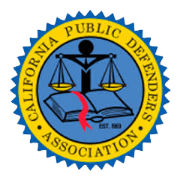
In recent years, California has made significant strides in reforming its criminal justice system, particularly when it comes to giving people a second chance. One of the most powerful tools for individuals with a criminal record is expungement. But who exactly qualifies for this fresh start? Let’s dive into the details of expungement eligibility in California. Expungement eligibility in California has evolved considerably, especially with the passage of new laws aimed at reducing barriers for those seeking to rebuild their lives after involvement with the criminal justice system. Whether you’re dealing with a misdemeanor or felony conviction, understanding your options for clearing your record is crucial.
Table of Contents:
- Understanding Expungement in California
- Types of Convictions Eligible for Expungement
- Convictions Not Eligible for Expungement
- The Expungement Process
- Benefits of Expungement
- Expungement vs. Record Sealing
- The Impact of Expungement on Employment
- Expungement and Immigration
- The Future of Expungement in California
- FAQs about Expungement Eligibility in California
- Conclusion
Understanding Expungement in California
Expungement in California is addressed in Penal Code 1203.4. It’s a legal process that allows individuals to petition the court to dismiss their conviction. When granted, it releases you from many of the penalties and disabilities resulting from the conviction.
It’s important to note that expungement doesn’t completely erase your criminal record. Instead, it updates the record to show that the conviction has been dismissed. This can still have significant benefits, particularly when it comes to employment opportunities and seeking expungement can make a difficult time in your life easier.
Who is Eligible for Expungement?
Generally, you may be eligible for expungement in California if:
- You were convicted of a misdemeanor or felony offense.
- You successfully completed probation or were discharged early.
- You are not currently serving a sentence for any offense.
- You are not currently charged with any criminal offense.
However, eligibility can be more nuanced depending on the specific circumstances of your case. Factors that can affect eligibility include the nature and severity of the offense, your criminal history, and your conduct since the conviction. It is always advisable to consult with an experienced criminal defense attorney to determine your specific eligibility for expungement in California.
Recent Changes to Expungement Laws
California has recently expanded expungement eligibility through new legislation. Senate Bill 731, which went into effect in 2023, allows individuals with most types of felony convictions, including some violent crimes, to petition for expungement.
This change represents a significant shift in California’s approach to criminal record relief, recognizing the long-term impact that a criminal record can have on an individual’s life prospects. It reflects a growing movement towards acknowledging rehabilitation and providing opportunities for individuals to move forward with their lives.
Types of Convictions Eligible for Expungement
While many convictions are eligible for expungement, it’s helpful to look at some common examples:
- Petty theft (PC 484 & 488)
- Trespassing (PC 602)
- Domestic battery (PC 243(e)(1))
- Receiving stolen property (PC 496)
- Solicitation of prostitution (PC 647(b))
This list is not exhaustive, and many other offenses may be eligible for expungement, including drug possession and drug crimes. The specific eligibility criteria can be found in California Penal Code section 1203.4 and other relevant statutes.
Convictions Not Eligible for Expungement
While California has broadened expungement eligibility, some convictions remain ineligible. These typically include:
- Certain serious sex offenses, especially those involving children.
- Some violent felonies requiring registration as a sex offender.
- Offenses requiring registration as a sex offender.
It’s crucial to consult with a legal professional to understand your specific situation, as the laws surrounding expungement eligibility in California can be complex. An experienced attorney can assess your case, advise you on your eligibility, and guide you through the process.
The Expungement Process
Obtaining an expungement in California involves several steps:
- Determine eligibility: This involves reviewing your criminal record, understanding the applicable laws, and assessing whether you meet the criteria for expungement.
- Gather necessary documentation: This may include court records, probation reports, and other relevant documents that support your eligibility.
- File a petition with the court: You will need to file a petition for expungement with the court where your conviction occurred. This petition outlines your request and provides the legal basis for it.
- Attend a hearing (if required): In some cases, the court may schedule a hearing to consider your petition. You may need to appear in court and present your case.
- Receive the court’s decision: The court will review your petition and any supporting documentation and issue a decision on whether to grant your request for expungement.
While it’s possible to navigate this process on your own, many individuals choose to work with an attorney experienced in expungement law to ensure the best possible outcome. An attorney can help you understand the process, prepare the necessary documents, and represent you in court if needed.
Benefits of Expungement
Expungement can offer numerous benefits to those seeking to move past their criminal record:
- Improved employment prospects: Expungement can remove barriers to employment, making it easier to find jobs and advance in your career. Employers are generally prohibited from discriminating against applicants with expunged convictions.
- Better housing opportunities: An expunged record can make it easier to rent or purchase a home, as landlords and mortgage lenders may consider criminal history in their decision-making process.
- Restored professional licensing eligibility: Some professional licenses may be revoked or denied due to criminal convictions. Expungement can restore your eligibility to obtain or renew these licenses, allowing you to pursue your chosen profession.
- Increased educational opportunities: Some educational institutions may consider criminal history in their admissions process. Expungement can improve your chances of getting accepted into colleges, universities, and vocational programs.
It’s worth noting that while expungement can significantly improve your situation, it doesn’t completely erase your criminal record. For instance, the conviction may still be visible to law enforcement and could be considered in future criminal proceedings. Additionally, certain entities, such as government agencies conducting background checks for security clearances, may still have access to expunged records.
Expungement vs. Record Sealing
It’s important to understand the difference between expungement and record sealing in California. While both processes aim to limit access to criminal records, they work differently:
| Expungement | Record Sealing |
|---|---|
| Dismisses the conviction. | Removes arrest record from public view. |
| Available for many convictions. | Typically for arrests that didn’t lead to conviction. |
| Record still exists but shows as dismissed. | Record is sealed and treated as if it never occurred. |
Understanding the differences between expungement and record sealing is crucial to determine the appropriate course of action for your specific situation. If you have been arrested but not convicted, you may be eligible for record sealing. If you were convicted of a crime, expungement may be the more appropriate option.
The Impact of Expungement on Employment
One of the most significant benefits of expungement is its impact on employment opportunities. California law prohibits employers from discriminating against job applicants based on expunged convictions. In fact, after expungement, you can legally answer “no” to questions about past convictions on most job applications.
However, there are some exceptions. You may still need to disclose expunged convictions when:
- Applying for a state license: Some state licensing boards have specific requirements regarding the disclosure of criminal history, even if convictions have been expunged. It is essential to check with the relevant licensing board for their policies.
- Running for public office: Candidates for public office may be required to disclose their criminal history, including expunged convictions, as part of the election process.
- Applying to work for the California Lottery Commission: The California Lottery Commission has the authority to deny employment based on criminal history, regardless of expungement.
It’s crucial to understand these nuances to avoid any potential legal issues down the line. If you are unsure whether you need to disclose an expunged conviction, it is always best to err on the side of caution and seek legal advice.
Expungement and Immigration
For non-citizens, expungement can have important implications for immigration status. While expungement doesn’t guarantee protection from immigration consequences, it can be helpful in certain situations. Expungement can demonstrate rehabilitation and good moral character, which can be favorable factors in immigration proceedings.
If you’re not a U.S. citizen and are considering expungement, it’s crucial to consult with an attorney who understands both criminal and immigration law. They can advise you on the potential impact of expungement on your immigration status and help you determine the best course of action.
The Future of Expungement in California
California continues to be at the forefront of criminal justice reform, and the landscape of expungement eligibility in California is likely to evolve further. Recent changes, such as the passage of Senate Bill 731, demonstrate a growing recognition of the long-term impacts of criminal records and the importance of providing second chances. California’s expungement laws are designed to enhance opportunities for rehabilitation and reintegration into society.
As we move forward, it’s possible we’ll see further expansions of expungement eligibility and potentially even automatic expungement for certain offenses. Staying informed about these changes is crucial for anyone with a criminal record in California. Resources such as the California Courts website, legal aid organizations, and criminal defense attorneys can provide up-to-date information on expungement laws and procedures.
FAQs about Expungement Eligibility in California
Who qualifies for expungement in California?
Generally, individuals who have completed probation, are not currently serving a sentence or charged with a new offense, and were convicted of a misdemeanor or eligible felony may qualify for expungement in California. However, eligibility can vary based on the specific circumstances of each case, such as the nature of the offense and the individual’s criminal history.
What cases can be expunged in California?
Many misdemeanors and some felonies can be expunged in California, including offenses such as petty theft, trespassing, possession of controlled substances, and certain theft crimes. However, some serious and violent felonies, as well as certain sex offenses, are not eligible for expungement.
How fast can you get your record expunged in California?
The expungement process in California typically takes between 2 to 4 months, but it can vary depending on the court’s caseload and the complexity of your case. Factors that can affect the timeline include the court’s backlog of cases, the completeness of the petition, and whether any objections are raised.
How much does it cost to have your record expunged in California?
The cost of expungement in California can vary depending on factors such as court filing fees and attorney fees. Court filing fees typically range from $60 to $120. Attorney fees can vary depending on the attorney’s experience and the complexity of the case.
Conclusion
Expungement eligibility in California has expanded significantly in recent years, offering hope to many individuals seeking to move beyond their past mistakes. While the process can be complex, the benefits of expungement can be life-changing, opening doors to better employment, housing, and educational opportunities. It can allow individuals to obtain a fresh start, free from the stigma and limitations often associated with a criminal record.
As California continues to lead the way in criminal justice reform, it’s crucial for individuals with criminal records to stay informed about their rights and options. Whether you’re dealing with a misdemeanor or felony conviction, exploring your eligibility for expungement could be the first step towards a brighter future. Seeking legal counsel from an experienced attorney specializing in expungement can provide you with the guidance and support needed to navigate the process successfully.
Remember, while this guide provides a general overview of expungement eligibility in California, every case is unique. Consulting with a qualified attorney can help you navigate the specifics of your situation and maximize your chances of a successful expungement. An attorney can assess your eligibility, gather the necessary documentation, file the petition on your behalf, and represent you in court if required.





